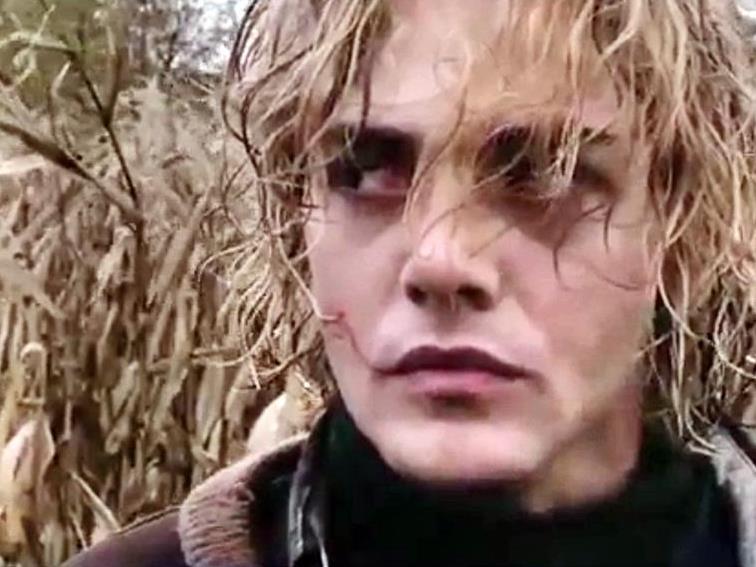The world is bleak and dreary as Tom (Xavier Dolan, Good Neighbours) travels to Canada’s rural outskirts to bid farewell to his boyfriend. His grief reverberates in waves, unable to be contained within his crumbling exterior or in the scrawled words he attempts to commit to a sliver of a napkin. The confused welcome he receives when he is found at his lover’s family home, the fragile Agathe (Lise Roy, Crying Out) uncertain at his sudden appearance and the hulking Francis (Pierre-Yves Cardinal, Romance) barely masking his disdain, amplifies an all-encompassing atmosphere not just of pronounced loss, but of sweeping harsh realities under the carpet.
Thus commences a trip to an isolated farm that seethes with the awkwardness of reconciling emotion and expectation, more so when neither is truly made plain. Desire-driven notions of affection and identity clearly trouble Dolan in his guise as a writer and director, his first four films in four years probing variations of finding one’s place and partner in the world. Where I Killed My Mother trifled with maternal boundaries, Heartbeats felt the full flush of lust and love, and Laurence Anyways celebrated the complexity of the pursuit of individualism, the aptly titled Tom at the Farm maturely ponders the aftermath of having and losing: both a companion and the contentment it brings, and the solace of an established sense of self.
It is in the minutiae of mourning that the film finds its fuel for its narrative and aesthetic expressions, in the erratic and the inexplicable that instantly becomes a part of bereaved life. Enacting that mindset is only a component of Dolan’s package, for his is a feature that uses its mental messiness for mysterious and menacing means. Amid the unease of Tom’s stopover, with Agathe oblivious to his relationship with her departed son, and the offspring that remains intent on covering up their pairing, springs a web of psychological complications. The frankly homophobic Francis toys with the visitor, brutally but also with rare moments of tenderness, as Tom struggles with competing feelings of repulsion and allure.
After remaining off camera with Laurence Anyways, Dolan returns to prime position as his own leading actor, excelling as a character trapped in a claustrophobic situation of outward abuse as well as unlikely empathy, but still just striving for the simplicity of a connection. His Tom fumbles and flounders in a cinematic construct of textured genre conventions, his slow testing of his limits an astute fit for the shower of gradual revelations and heightened suspense the film becomes. Other main roles and corresponding performances may be more defined in their narrative purpose, but they revolve around their contrast to the protagonist, cold to his attempts at warmth, blunt against his efforts of subtlety.
Unmistakably Hitchcockian displays of trauma and teasing are at the heart of Tom at the Farm; however there’s also the filtering of the filmmaker’s thriller influences into a work that looks and feels like his creation. The story comes from the stage work by Michel Marc Bouchard, but the wunderkind makes it his own with a moody elegance that twists, turns and is never satisfied with any singular interpretation. Just as the sprawling fields of crops caught by cinematographer André Turpin’s (Incendies) roaming lens both confine the tension and conflate it with pulsating energy; just as the chilling strains of composer Gabriel Yared’s (A Royal Affair) pensive score evoke both urgency and eroticism; the feature simmers as the sum of competing but harmonising elements. In Tom at the Farm, the thrall of desire is again, darkly and deeply, Dolan’s penetrating plaything.
Rating: 4 ½ out of 5 stars
Tom at the Farm (Tom à la ferme)
Director: Xavier Dolan
Canada / France, 2013, 102 mins
Sydney Film Festival
http://www.sff.org.au/
4 – 15 June
Actors:
Director:
Format:
Country:
Release:





